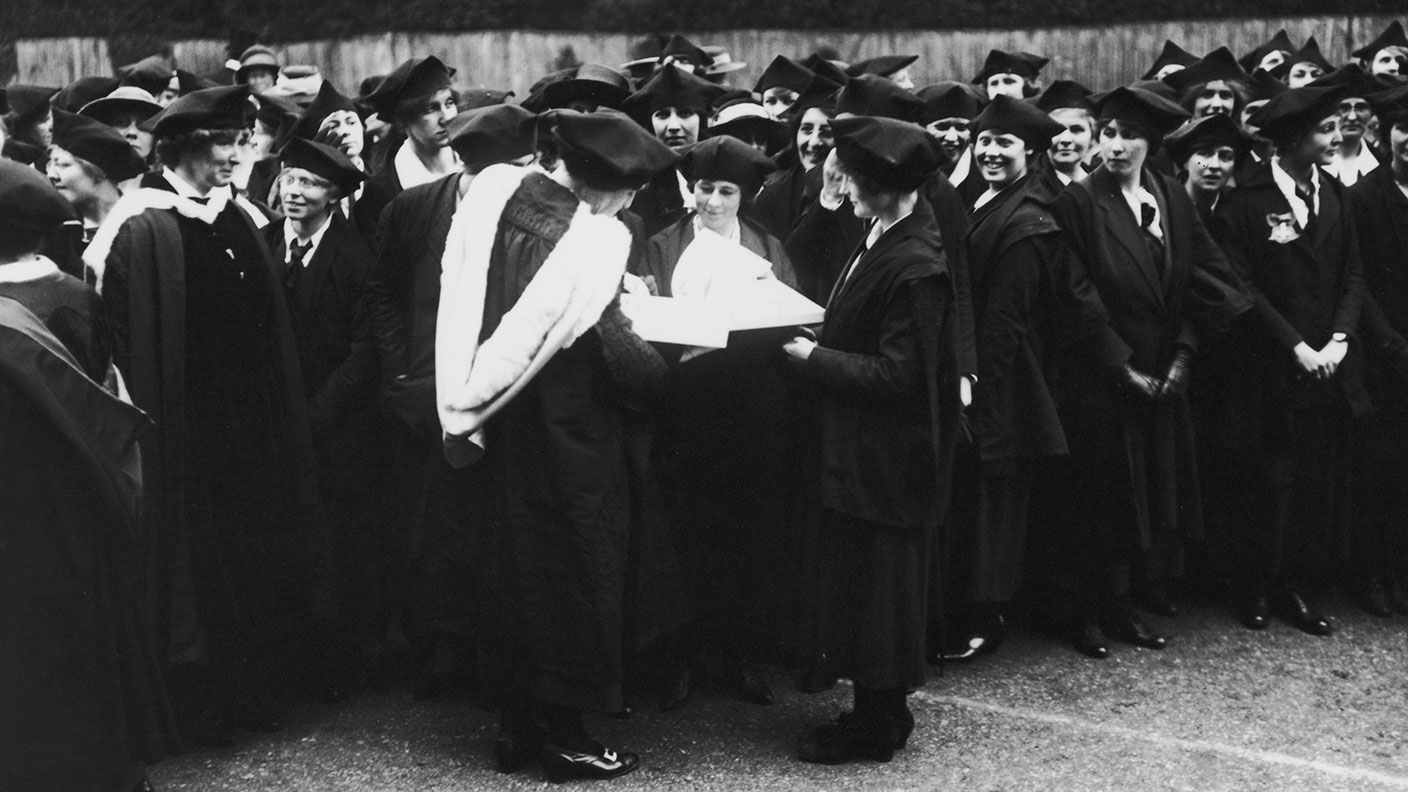
Get the latest financial news, insights and expert analysis from our award-winning MoneyWeek team, to help you understand what really matters when it comes to your finances.
You are now subscribed
Your newsletter sign-up was successful
Want to add more newsletters?

Twice daily
MoneyWeek
Get the latest financial news, insights and expert analysis from our award-winning MoneyWeek team, to help you understand what really matters when it comes to your finances.

Four times a week
Look After My Bills
Sign up to our free money-saving newsletter, filled with the latest news and expert advice to help you find the best tips and deals for managing your bills. Start saving today!
Here in jolly old Britain, we like to pat ourselves on the back about how modern and civilised we all are; how fair-minded and even-handed our society is. We may still have someway to go to reach full sex equality, perhaps, but broadly speaking, women are able to compete with men on an equal footing. There are still people who complain about the evils of feminism, true, but those people are wrong, and shouldn't be listened to by anyone.
But all this splendid equality is a relatively new phenomenon. Until recently, education for women just didn't exist beyond primary level. As late as 1864, England and Wales boasted just 12 secondary schools for girls. So it was hardly surprising that almost no women went to university.
But in the event that a woman did receive an education that would allow her to study at a university level, it would have been of little use. Universities didn't admit women.
MoneyWeek
Subscribe to MoneyWeek today and get your first six magazine issues absolutely FREE

Sign up to Money Morning
Don't miss the latest investment and personal finances news, market analysis, plus money-saving tips with our free twice-daily newsletter
Don't miss the latest investment and personal finances news, market analysis, plus money-saving tips with our free twice-daily newsletter
But by the middle of the 19th century, things had begun to change. The first higher education college for women – Bedford College in London – was established in 1849. And in 1869, Emily Davies set up Cambridge's Girton College.
Students at Oxford University had to wait another decade, until Lady Margaret Hall and Somerville colleges opened in 1879. Until then, women had only been allowed to attend lectures given by their friends or relatives after being granted special permission.
But the establishment of these colleges didn't mean women would be awarded degrees, even if they attended lectures and passed examinations. It wasn't until this day in 1920, a mere century ago, that Oxford graciously allowed women to matriculate.
Within eight years, women would be allowed to vote on the same basis as men. And by 1979, Oxford graduate Margaret Thatcher was prime minister. It is perhaps interesting to note that, despite gaining a real degree from Somerville College, the university denied her an honorary degree in 1985.
Get the latest financial news, insights and expert analysis from our award-winning MoneyWeek team, to help you understand what really matters when it comes to your finances.

-
 Average UK house price reaches £300,000 for first time, Halifax says
Average UK house price reaches £300,000 for first time, Halifax saysWhile the average house price has topped £300k, regional disparities still remain, Halifax finds.
-
 Barings Emerging Europe trust bounces back from Russia woes
Barings Emerging Europe trust bounces back from Russia woesBarings Emerging Europe trust has added the Middle East and Africa to its mandate, delivering a strong recovery, says Max King
-
 31 August 1957: the Federation of Malaya declares independence from the UK
31 August 1957: the Federation of Malaya declares independence from the UKFeatures On this day in 1957, after ten years of preparation, the Federation of Malaya became an independent nation.
-
 13 April 1960: the first satellite navigation system is launched
13 April 1960: the first satellite navigation system is launchedFeatures On this day in 1960, Nasa sent the Transit 1B satellite into orbit to provide positioning for the US Navy’s fleet of Polaris ballistic missile submarines.
-
 9 April 1838: National Gallery opens in Trafalgar Square
9 April 1838: National Gallery opens in Trafalgar SquareFeatures On this day in 1838, William Wilkins’ new National Gallery building in Trafalgar Square opened to the public.
-
3 March 1962: British Antarctic Territory is created
Features On this day in 1962, Britain formed the British Antarctic Territory administered from the Falkland Islands.
-
10 March 2000: the dotcom bubble peaks
Features Tech mania fanned by the dawning of the internet age inflated the dotcom bubble to maximum extent, on this day in 2000.
-
9 March 1776: Adam Smith publishes 'The Wealth of Nations'
Features On this day in 1776, Adam Smith, the “father of modern economics”, published his hugely influential book The Wealth of Nations.
-
 8 March 1817: the New York Stock Exchange is formed
8 March 1817: the New York Stock Exchange is formedFeatures On this day in 1817, a group of brokers moved out of a New York coffee house to form what would become the biggest stock exchange in the world.
-
7 March 1969: Queen Elizabeth II officially opens the Victoria Line
Features On this day in 1969, Queen Elizabeth II took only her second trip on the tube to officially open the underground’s newest line – the Victoria Line.
